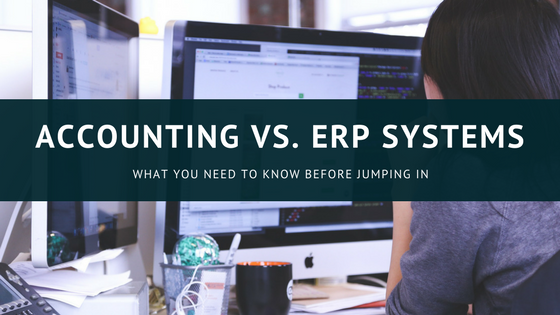ERP software has come a long way since that pivotal moment in 1990, when Gartner coined the term 'enterprise resource planning' to describe a new breed of software that evolved out of manufacturing resource planning (MRPII).
These new software not only boasted processes from MRPII systems, but also had integrated company-wide operations applications — financial management, supply chain management, procurement management etc.
But with history comes baggage. And that baggage is the notoriety held by late 90s/early 2000s ERP systems for being expensive, clunky, and tedious to implement. This has led to some small and midsized enterprises (SMEs) still holding on to legacy systems and their old ways of doing things, in the bid to avoid costly migration hassles.
Fortunately, things have changed with the advent of sleek and affordable modern ERP systems designed for agile SMEs.
As of 2023, the global ERP software market is projected to be worth about US$65.2 billion. That’s a pretty powerful testament to how instrumental they've been in improving performance for thousands of organisations worldwide.
If you’re considering whether you should upgrade your old setup to a modern ERP system, here are four ways they can significantly bolster your business's productivity, and ensure it keeps pace with your competitors going into the new decade.
1. Modern ERP Software Provides A Single Source of Truth (Really)

Your legacy system may have been customised to suit the needs of your businesses when it was first implemented years ago.
But as your organisation grew, your business needs would've evolved along as well. Greater volume of transactional data, increased reporting requirements, more departments and/or subsidiaries to manage -- all these and more place a growing burden on your old setup that was never meant to bear.
This may have led to your departments and/or subsidiaries turning to third-party applications to serve their operational needs, which means there is 'shadow IT' running business functions that your IT department may not know about.
Amongst other issues, this shadow IT are most likely disconnected from your legacy ERP software, causing your departments and/or subsidiaries to become business silos as data is not easily transferred between the third-party software and your legacy ERP system.
This means your employees will often have to sift through shadow IT, and maybe other scattered records in spreadsheets and hard copies etc. to find data relevant to any business decisions you may need to make in the moment.
It takes a lot of time to manually compile and verify the accuracy of the data, which may result in delays in your decision making, and reduce the overall productivity of your business as a result.
A modern ERP system comes with a full feature set of business functions, which means that implementing one can give your departments and/or subsidiaries the functionalities they need.
At the same time, it integrates all of your business data into a centralised database, eliminating duplicated records as well as the redundant work that goes into maintaining them.
This means a modern ERP software can not only break the siloes that exist within your business, but also makes a single source of truth available to every department and subsidiary in your business.
This helps to expedite the decision-making process in every facet of your business, significantly improving its overall productivity.
2. Modern ERP Makes Project Management More Effective

The benefits of using modern ERP software to integrate your data into a centralised database doesn’t stop at providing you with a single source of truth in your processes; it can also actively assist in the management of the ongoing projects in your business.
That’s because the centralised database also contains the necessary data pertaining to a project, and every individual involved in said project will have equal ease of access to that data no matter which department or subsidiary they may be from.
This lets your project team members communicate critical information about their project through the modern ERP software’s database, bypassing the need to fax or email documents and making collaboration on the project itself that much easier.
Not only does this help your project team carry out their responsibilities, it also means you can use this data to set Specific, Measurable, Achievable, Reasonably and Timely (SMART) goals for your project team to achieve.
You can even set completion dates for each goal, allowing you to track the progress of these goals and ensure that your projects are proceeding on schedule.
Since your project team members enjoy greater visibility of the project data thanks to the centralised database, they will also have a greater insight on how their individual efforts contribute to your business’s overall objectives.
This can help foster greater motivation and engagement amongst your employees, which will lead to increased productivity across the board for your business.
3. Modern ERP Makes Financial Management Easy And Error-free

Let’s not mince words; an ERP implementation project is a significant financial commitment for your business, whether it’s an SME with a limited budget or a large MNC with funds to spare.
What you may not have realised on the other hand, is that a properly-implemented ERP software can offer a high return on investment (ROI) for your business as well.
That’s because a modern ERP system can make it so much easier for you to manage the finances of your business, especially when transactions become more complex in line with your business’s continued growth.
The centralised database of an ERP software makes it easy for your financial personnel to track not just your business’s expenses and costs, but also the finer details such as the amount involved in every transaction, which of your business projects necessitated those transactions, as well as which departments were specifically responsible for each transaction.
And since the only manual data entry involved with an ERP software is the input of financial data into the central database, this eliminates the need to manually cross-check and update this data through various spreadsheets (which can still be an issue with legacy ERP software), greatly reducing the opportunities for human error.
This means you get to enjoy high confidence in the accuracy of the data within financial reports generated by the ERP, and can quickly make decisions that will boost your business’s profits and cut down on any unnecessary expenses draining your coffers.
Because of how much time and money it can save you when it comes to managing your business finances, a modern ERP software will thus pay for itself in time.
4. Modern ERP Helps You Serve Your Customer Better
The first legacy ERP systems were a development from their Manufacturing Resource Planning (MRP) predecessors, and it shows in how they’re usually specialised in managing back-end business functions such as accounting, supply chains and warehousing etc.
However, the emergence of the Information Age in the 21st century has fundamentally changed what customer service entails, as your potential customers are now accustomed to prompt and personalised customer experiences from their vendors thanks to the Internet.
To acquire and convert your leads into customers these days, you now need to know what they need and want, and provide products and services that cater to them; in short, you have to engage in customer relationship management (CRM) efforts.
And to be successful in CRM, your business should be capable of collecting and storing customer data, which will then inform your CRM efforts.
Your legacy ERP software may not provide that functionality, as it may have been designed before the Information Age really kicked off.
But modern ERP software are designed with CRM functionality in mind, which makes them essential for CRM efforts going forward.
That’s because your customer service department can make use of its centralised database to access the entirety of a customer’s transaction history, and track details such as order history and billing information.
This helps your business get a greater understanding of your potential customers’ needs and wants, so you can design and offer customer-centred products and services to improve your lead generation and retention.

Another way that modern ERP software can help your business is to make it easier to attain customer satisfaction with your business’s products and services.
The centralised database means that your business can track details about your customers’ previous orders, such as quantity, urgency, and follow-up details etc.
It also means they can access data that’s relevant to their customer service outreach. For example, your sales department have real-time access to expected delivery dates for available stock from warehousing, and this allows them to promise concrete delivery dates to your customers.
This facilitates quick and error-free processing of customer orders, which will boost your business’s reputation in the eyes of your customers.
Get Ready For Today's Challenges With Modern ERP Software
A modern ERP software is one of the most important assets you need to digitally transform your business, and prepare it for the challenges of the new decade.
That’s because it can offer you a single source of insight into every aspect of your business functions, where legacy systems might only cover a portion of these processes and thus falls short in this aspect.
This not only helps you manage your projects more effectively, it also makes managing the associated expenses and costs so much easier to manage.
You’ll even get a better idea of what your customers are looking for, allowing you to better acquire and convert your leads by offering products and services that are designed to cater to their needs.




